Introduction
Integrity is described as ‘The consistency of character to align my thoughts, words and actions to do what is right’ (Defence, Values and Behaviours). Where have you seen this value of integrity demonstrated at its best?
I asked a group of learners how they define integrity and they said: ‘Aligning your thoughts and actions to match what you say’, ‘Holding yourself accountable’, ‘Doing the right thing when no one is looking’, ‘Owning up to mistakes’ and ‘Not compromising your own values and principles.’ Brené Brown, an American academic and author of six number one NY Times bestsellers, defines integrity as ‘choosing what is right over what is easy, fast or fun, and practicing not just professing values’.
Soldiers have shared with me powerful examples of integrity in action. They see it when members refuse to look the other way when something is wrong and when staff take responsibility for their mistakes. Integrity is evident when members tell the truth, even if it means facing consequences, and when they uphold high standards, whether or not anyone is watching.
It’s also reflected in everyday behaviours, like paying for refreshments using a fridge honesty system or following proper procedures for compliance tasks instead of cutting corners. Soldiers recognise integrity when members report equipment issues rather than leaving them unresolved for others, and when they stand firm against covering up toxic or dysfunctional behaviour.
I have seen integrity in a Sergeant who said they self-critiqued their own work performance and viewed themself as their own assessor and did not just wait for the boss to appraise them. They also sought to perform more rather than less after September when they had their final Performance Appraisal Report (PAR) before marching out in December. I have been impressed by RSMs who pick up rubbish, COs who wash their own Defence vehicle, Privates who refuse to take undue advantage of allowances, pilots who explain how they pulled out of a bombing mission because of collateral damage, and soldiers who refused to mistreat enemy POWs.
Integrity does not mean you never slip up. CHAP Luke Skipper helpfully explains there is a difference between a character slip and a character flaw. A character slip is a misjudgement by otherwise good soldiers. More leniency can be given to slips as the soldiers themselves are their harshest critics and are less likely to repeat their mistakes. A character flaw, however, is a deficit in someone’s ongoing character. Less leniency is appropriately given to those with known flaws and who don’t proactively attempt correction. Ongoing character improvement is required. You might find yourself slipping in character one day, or doing something that lacks good judgment. Be encouraged to pursue integrity not to let that slip further into a character flaw of repeated habitual behaviour.
I discussed character slips and flaws in ‘Character Training Transformation’ on The Cove, where I also quoted a Navy Senior Non-Commissioned Officer (SNCO) who inspired me to in encouraging growth in integrity without expecting perfection. She was in a meeting discussing young recruits and some tendencies towards poor decisions and misbehaviour. Some staff were suggesting recruit school should toughen up, tolerate less and remove offenders earlier. But this leader spoke empathetically in defence of young recruits and their potential to grow in integrity. She reminded her colleagues they had reached their rank but when they joined had likely displayed a normal share of slips in judgment. ‘What we always need,’ she suggested, ‘was to recognise discipline and guidance will often be appropriate, but as long as recruits are willing to grow and learn from mistakes [i.e. in the direction of Defence values including integrity], then Defence should continue to invest in them.’
You may have seen values and integrity embodied in athletes at their best. Kenyan runner Abel Mutai was a few meters from the finish line but got confused and thought he’d finished. Spanish runner Iván Fernández Anaya was just behind and shouted to the Kenyan to keep running. Mutai did not understand Fernandez’ Spanish, so Fernandez literally pushed Mutai to victory.
‘Why did you do this?’ a reporter queried him.
‘My dream,’ Iván stated, ‘is that one day we can have the kind of community life that pushes ourselves and others to win as well.’
‘But why did you let the Kenyan win?’
‘I didn't let him win, he would win. It was his race.’
‘But you could have won!’
‘But what is the merit of my victory?’ Iván replied, ‘What is the honour of this medal? What will my mother think?’
A good test of integrity asks what would my family think? Or would this action be approved by CDF? Or does it pass the ‘fan ceiling’ test; i.e. could I live with myself in years to come, when late at night, as I sleeplessly stare up at the ceiling fan, and I am ruminating about past decisions? Integrity is important for the trust people place in us but also so we can live with ourselves with pride.
‘Be honest with and about yourself. Be open, at the right time, about your real doubts and concerns. … Integrity requires alignment of thoughts, words and actions. … It is not a virtue you live by when it is convenient: it is a virtue you live by all the time. It includes the little as well as the big choices; the choices everyone sees and the choices that no one sees.’
Integrity calls for honesty and consistency, always. For example, never say anything you do not believe. That may reduce how much you say but will strengthen the value of your speech. And never do anything that does not match up to or underline the reputation of Defence.
Militaries across the Western world have been embarrassed in recent decades by lack of integrity with ethical behaviours. Scandals of unlawful killing remind us about the importance of consistency with morals. This is why cases such as the My Lai massacre, Abu Ghraib torture and British Royal Marine Sergeant Blackman murdering a POW are shameful. Yet the decisions of Warrant Officer High Thompson interceding at My Lai or SEAL Team 10 made famous in ‘Lone Survivor’ not killing civilian shepherds who found their location is admirable.
Lack of integrity can lose the hearts and minds of locals, as the anthology Making the Military Moral suggests. That book tells the story of a Marine who was teetering on the edge of unethical violence, until a mate reminded him: ‘Marines don’t do that’. Remind yourself when you see or are tempted to display a lack of integrity, ‘Aussie diggers don’t do that.’ Our modus operandi is integrity – always doing the right thing because it is the right thing to do.
Meditation Exercise #1: What does the Defence value of integrity mean to you and where have you seen it embodied and lived out at its best?
Historical inspiration – RAAF Chaplains’ advocacy
The book, Sky Pilot, the history of RAF chaplaincy by Peter A Davidson, explains that during the post-WWII Japanese occupation, there were rules against Australian service-people fraternising with local people, largely to counter a high-incidence of STDs. Yet many Australians, circumventing military rules, had loving relationships and some conducted Japanese marriages and believed their marriage was proper and children legitimate. Yet the Australian Government refused to accept the legitimacy of any Serviceman’s relationship with a Japanese woman. Australian RAAF Chaplain Bennett noted that American policy allowed these relationships, they likely lowered STD rates, and argued it was unjust to expect Australian men to abandon their Japanese wives and ‘half-Australian’ babies. His point was accepted, the policy was abandoned and the future of the women and children secured.
Meditation Exercise #2: Where do you see the Defence value of integrity in the actions of this historical story, or other Defence stories you have heard?
Meditation Exercise #3: How could you and your team develop a similar commitment to integrity?
Movie illustration: Hacksaw Ridge
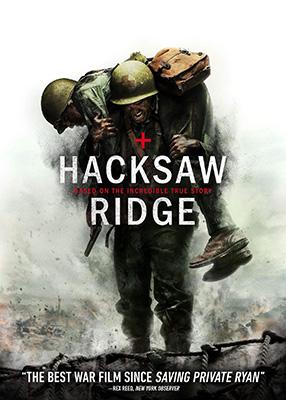
Movies can powerfully inspire values-based character (see Positive Psychology at the Movies). For a terrific movie that illustrates values-based behaviour, watch Hacksaw Ridge and especially the scene where US Army medic Desmond Doss demonstrates the integrity of his convictions in a court-martial in ‘Hacksaw Ridge Protected by the Constitution’ (6:14) (best viewed off DPN).
Meditation Exercise #4: What can Defence members learn about the value of integrity from this scene?
Meditation Exercise #5: What other movies and scenes best illustrate and inspire integrity for you?
Contemporary scenario – Costly maintenance

You are tasked to remove faulty sealant and replace new sealant in an aircraft. The task requires your team to work inside the fuel tanks. Some team members are beginning to complain of medical problems they suggest are a result of the work. Your superiors acknowledge it is an unpleasant job but encourage you to ensure your team does not avoid the work. You know a team member from another base refused to enter the fuel tank and was charged with refusal to obey orders.
Meditation Exercise #6: Consider what is a good soldiering response?
A – To help morale and motivation, lead by example and work in the fuel tanks with your team and get the job finished ASAP.
B – Acknowledge some unpleasant jobs need to be done. But to make it manageable arrange for shorter shifts with less time for workers inside the fuel tanks. Monitor any health concerns.
C – Organise for all your team to make individual appointments with the base doctor to demonstrate the volume of the problem to Command.
D – Choose another alternative: __________________________________________.
This scenario reflects the F-111 Deseal-Reseal program discussed in Military Virtues.
Reflection exercise – Integrity reps & sets
US Navy Admiral McRaven’s ‘Make your Bed' advice similarly underlines the importance of daily engagement in the ‘little things in life’ and values-based habits that change the world.
Defence values and integrity are not taught in a classroom but learned in practice. This exercise is about having ‘reps and sets’ that can helps to build your character muscle memory. As a drill over the coming day, when you are faced with a decision, ask yourself:
à ‘What will I as a person of character guided by INTEGRITY do here?’
Take a mental note of how the Defence value of integrity guided your actions, note it in your journal and/or be prepared to discuss your lesson with your team.
If time allows, start discussing this question now and/or leave it till another session for review:
Meditation Exercise #7: In what ways have you recently been guided by the Defence value of integrity?
Other activities
If you are interested in other movie scenes that illustrate integrity, watch:
‘Legend of Baggar Vence’ scene ‘Bobby Jones - Calls 1 stroke penalty on himself’ (2:17)
‘Examples of Winters’ Leadership’ (5:00)
If you enjoyed this activity, why not try other Learning Packages on Service, Courage, Respect or Excellence in the Forge, or an introductory Quick Military Education (QME) session on ADF Values or other QMEs available on The Cove?
Comments
If you have suggestions for improvements – other readings, scenarios, movies, discussion points, delivery methods, or if you have seen this value embodied by someone – or if you just want to provide feedback, please login to comment.

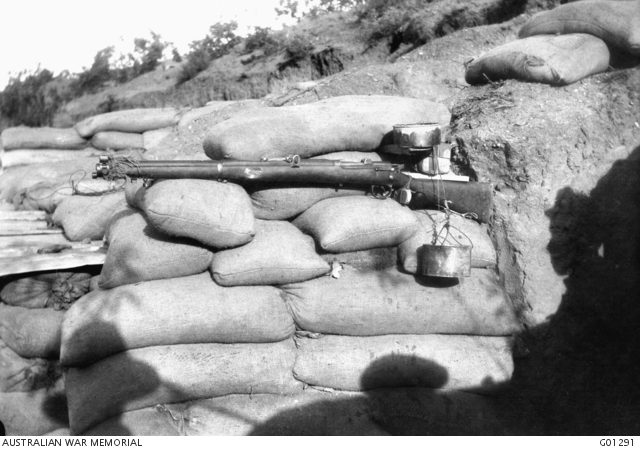
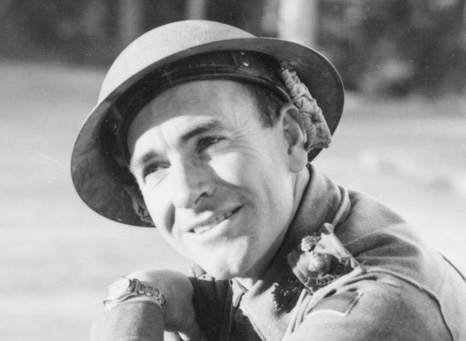
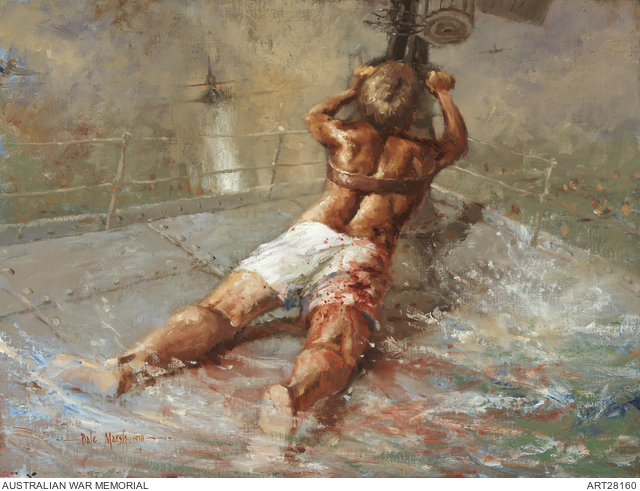

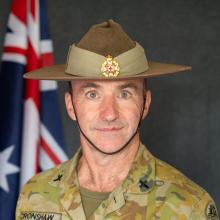
Comments
Start the conversation by sharing your thoughts! Please login to comment. If you don't yet have an account registration is quick and easy.